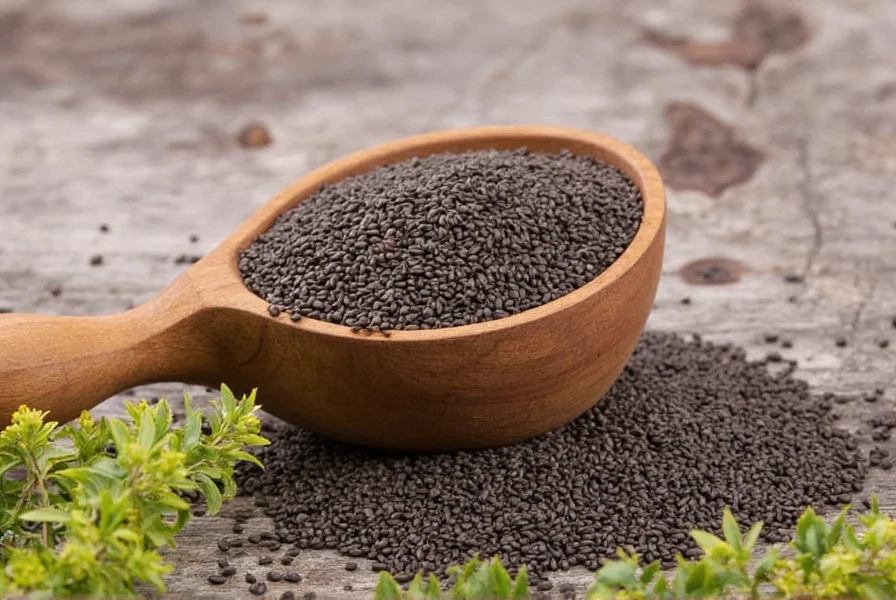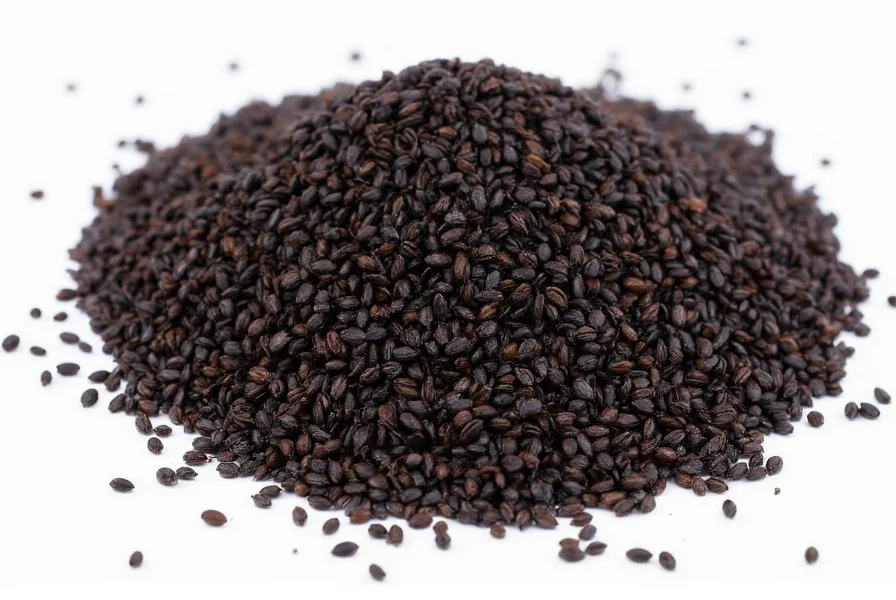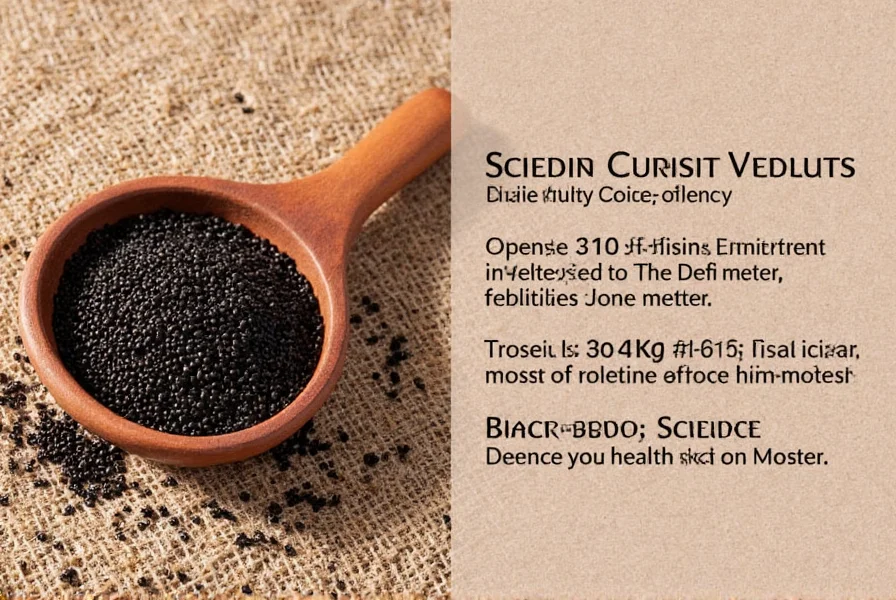For centuries, black cumin seeds (Nigella sativa) have been valued across Middle Eastern, Asian, and African cultures for both culinary and therapeutic purposes. Modern scientific research is now validating many traditional uses while uncovering new potential health applications of these tiny black seeds. Unlike regular cumin (Cuminum cyminum), black cumin belongs to the Ranunculaceae family and contains unique bioactive compounds that contribute to its distinctive health properties.
What Makes Black Cumin Seeds Unique
The primary active compound in black cumin seeds is thymoquinone, which constitutes approximately 30-48% of the essential oil extracted from these seeds. This compound demonstrates remarkable biological activity, including:
- Powerful antioxidant capacity that combats oxidative stress
- Significant anti-inflammatory effects at the cellular level
- Modulation of immune system responses
- Antimicrobial properties against various pathogens
Additional compounds contributing to black cumin's therapeutic profile include nigellone, alpha-hederin, and various fatty acids. The synergistic interaction between these components creates what researchers call the "entourage effect," where the whole seed extract demonstrates greater efficacy than isolated compounds alone.
| Key Compound | Natural Concentration | Primary Biological Activities |
|---|---|---|
| Thymoquinone | 0.5-1.5% of seed weight | Antioxidant, anti-inflammatory, neuroprotective |
| Nigellone | Trace amounts | Antispasmodic, bronchodilatory |
| Alpha-hederin | 0.1-0.3% of seed weight | Anticancer, immune-modulating |
| Linoleic acid | 50-60% of seed oil | Cardiovascular support, skin health |
Scientifically Researched Health Benefits
Respiratory Health Support
Multiple clinical studies demonstrate black cumin seeds' potential for respiratory conditions. A 2019 meta-analysis published in Phytotherapy Research reviewed 12 clinical trials involving 727 participants with asthma. Researchers found that black seed oil supplementation significantly improved pulmonary function tests and reduced asthma symptoms compared to placebo. The anti-inflammatory and bronchodilatory effects appear particularly beneficial for managing chronic respiratory conditions.

Blood Sugar Regulation
For individuals concerned about metabolic health, black cumin seeds show promising effects on glucose metabolism. A systematic review in the Journal of Ethnopharmacology (2021) analyzed 25 clinical trials involving 1,300 participants with type 2 diabetes. The review concluded that black seed supplementation significantly reduced fasting blood glucose, HbA1c levels, and insulin resistance compared to control groups. The mechanism appears related to enhanced insulin sensitivity and pancreatic beta-cell function.
Cardiovascular Protection
Research suggests black cumin seeds may support heart health through multiple pathways. A randomized controlled trial published in Lipids in Health and Disease (2020) followed 90 participants with mild hypertension. After eight weeks of daily black seed oil supplementation, participants showed significant reductions in both systolic and diastolic blood pressure compared to the control group. Additional studies indicate potential benefits for improving lipid profiles by reducing LDL cholesterol while maintaining or increasing HDL cholesterol levels.
Immune System Modulation
Unlike many supplements that simply "boost" the immune system, black cumin seeds demonstrate immunomodulatory properties—helping regulate immune responses. Research in Immunology Letters (2022) demonstrated that thymoquinone can suppress excessive inflammatory responses while enhancing certain protective immune functions. This dual action makes black cumin potentially valuable for managing autoimmune conditions and chronic inflammation without causing immunosuppression.
Practical Usage Guidelines
Understanding how to properly incorporate black cumin seeds into your wellness routine is essential for maximizing potential benefits while minimizing risks:
Available Forms and Recommended Dosages
Black cumin appears in several forms, each with different concentration levels:
- Whole seeds: 1-2 grams daily (about 1-2 teaspoons), often crushed or chewed
- Seed oil: 1-2 mL daily (approximately 1/4 to 1/2 teaspoon)
- Capsule supplements: Typically 500-1000 mg standardized to 0.5-3% thymoquinone
Most clinical studies showing benefits used doses within these ranges for periods of 8-12 weeks. Consistency appears more important than high dosing, as many benefits develop gradually.
Incorporating Into Daily Routine
Traditional preparation methods maximize bioavailability:
- Crush seeds before consumption to release active compounds
- Combine with honey (a traditional preparation called "Habba Sauda")
- Mix oil with warm water or milk for better absorption
- Add to bread dough or sprinkle on flatbreads before baking
Safety Considerations and Potential Interactions
While generally recognized as safe when consumed in food amounts, medicinal use requires caution:
Documented Side Effects
Most adverse effects occur with higher medicinal doses:
- Mild gastrointestinal discomfort (nausea, bloating)
- Skin rash with topical application in sensitive individuals
- Lowered blood pressure (significant for those on antihypertensive medications)
- Potential blood sugar lowering effects (caution for diabetics on medication)
Important Medication Interactions
Black cumin seeds may interact with several common medications:
- Anticoagulants: May enhance blood-thinning effects of medications like warfarin
- Antihypertensives: May cause additive blood pressure lowering effects
- Diabetes medications: May enhance blood sugar lowering effects
- Immunosuppressants: May interfere with medication efficacy

Contraindications
Certain populations should avoid black cumin seeds in medicinal amounts:
- Pregnant women (may stimulate uterine contractions)
- Individuals with bleeding disorders
- Those scheduled for surgery within two weeks
- People with known allergy to plants in the Ranunculaceae family
Understanding Research Limitations
While the potential benefits of black cumin seeds are promising, it's crucial to understand the current state of research:
- Many human studies have small sample sizes (fewer than 100 participants)
- Long-term safety data beyond 6-12 months is limited
- Optimal dosing protocols aren't fully established
- Quality and composition vary significantly between products
- Most research examines short-term effects rather than chronic use
Researchers consistently call for larger, longer-term clinical trials to establish definitive therapeutic protocols. The current evidence supports black cumin seeds as a potentially valuable complementary approach to wellness, but not as a replacement for conventional medical treatments for serious health conditions.
Making Informed Choices
When selecting black cumin products, consider these evidence-based quality indicators:
- Look for standardized extracts specifying thymoquinone content (0.5-3%)
- Choose cold-pressed oils stored in dark glass containers
- Verify third-party testing for purity and potency
- Check for organic certification to avoid pesticide residues
- Prefer products with transparent sourcing information
Remember that whole seed preparations often demonstrate better efficacy than isolated compounds due to the synergistic "entourage effect" of multiple bioactive components working together.
Frequently Asked Questions
What is the difference between black cumin seeds and regular cumin?
Black cumin seeds (Nigella sativa) and regular cumin (Cuminum cyminum) come from different plant families and have distinct properties. Black cumin belongs to the buttercup family (Ranunculaceae) while regular cumin is in the parsley family (Apiaceae). Black cumin seeds are smaller, black, and contain thymoquinone as their primary active compound, whereas regular cumin has a different chemical profile dominated by cuminaldehyde. They have different flavors, traditional uses, and researched health benefits.
How long does it take to see benefits from black cumin seeds?
Most clinical studies showing measurable benefits used black cumin seeds consistently for 8-12 weeks. Some people report noticing subtle improvements in energy or digestion within 2-4 weeks, but significant physiological changes typically require longer consistent use. Research suggests that many of the anti-inflammatory and metabolic benefits develop gradually over 2-3 months of regular consumption at appropriate doses.
Can black cumin seeds help with weight loss?
Some preliminary research suggests black cumin seeds may support weight management through multiple mechanisms including improved insulin sensitivity and reduced inflammation. A 2020 study in the Journal of Diabetes & Metabolic Disorders found that participants taking black seed oil lost significantly more weight than the control group over eight weeks. However, these effects appear modest and work best when combined with a healthy diet and regular exercise. Black cumin seeds alone are not a magic solution for weight loss.
Are there any drug interactions I should be aware of with black cumin seeds?
Yes, black cumin seeds may interact with several medications. They can enhance the effects of blood pressure medications (potentially causing hypotension), diabetes medications (increasing risk of hypoglycemia), and blood thinners (increasing bleeding risk). The compounds in black cumin may also affect how the liver metabolizes certain medications. If you take prescription medications, especially for blood pressure, diabetes, or blood clotting, consult your healthcare provider before using black cumin seeds medicinally.
What's the best way to consume black cumin seeds for maximum benefit?
Traditional preparation methods maximize bioavailability. Crush the seeds before consumption to release active compounds, and combine with a small amount of honey (a preparation called "Habba Sauda"). For oil, mix with warm water or milk to improve absorption. Consistency matters more than high dosing—1-2 grams of seeds or 1-2 mL of oil daily appears effective based on clinical research. Avoid heating black cumin oil above 175°F (80°C) to preserve active compounds.











 浙公网安备
33010002000092号
浙公网安备
33010002000092号 浙B2-20120091-4
浙B2-20120091-4